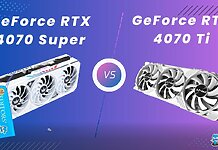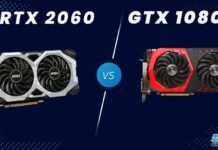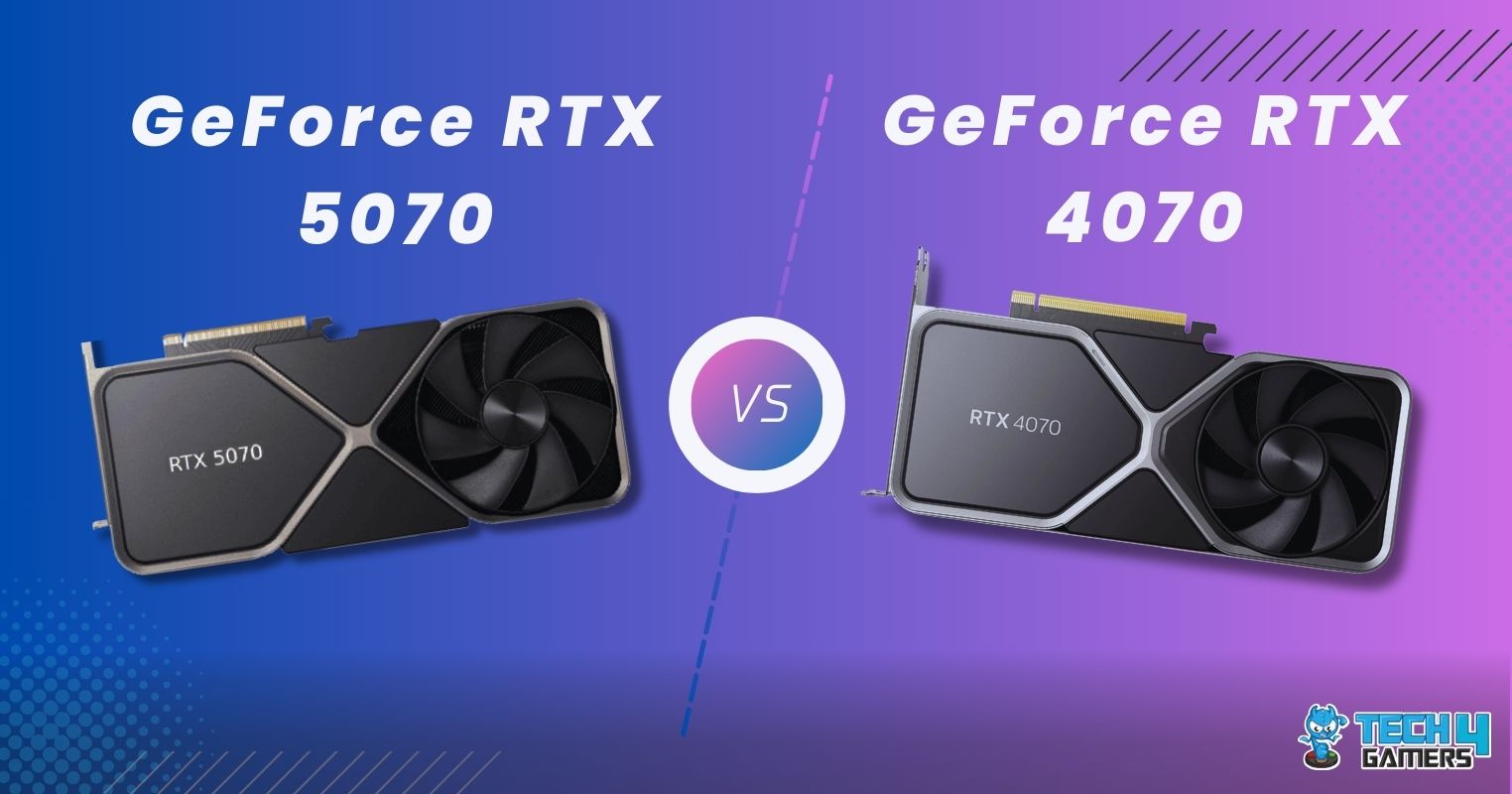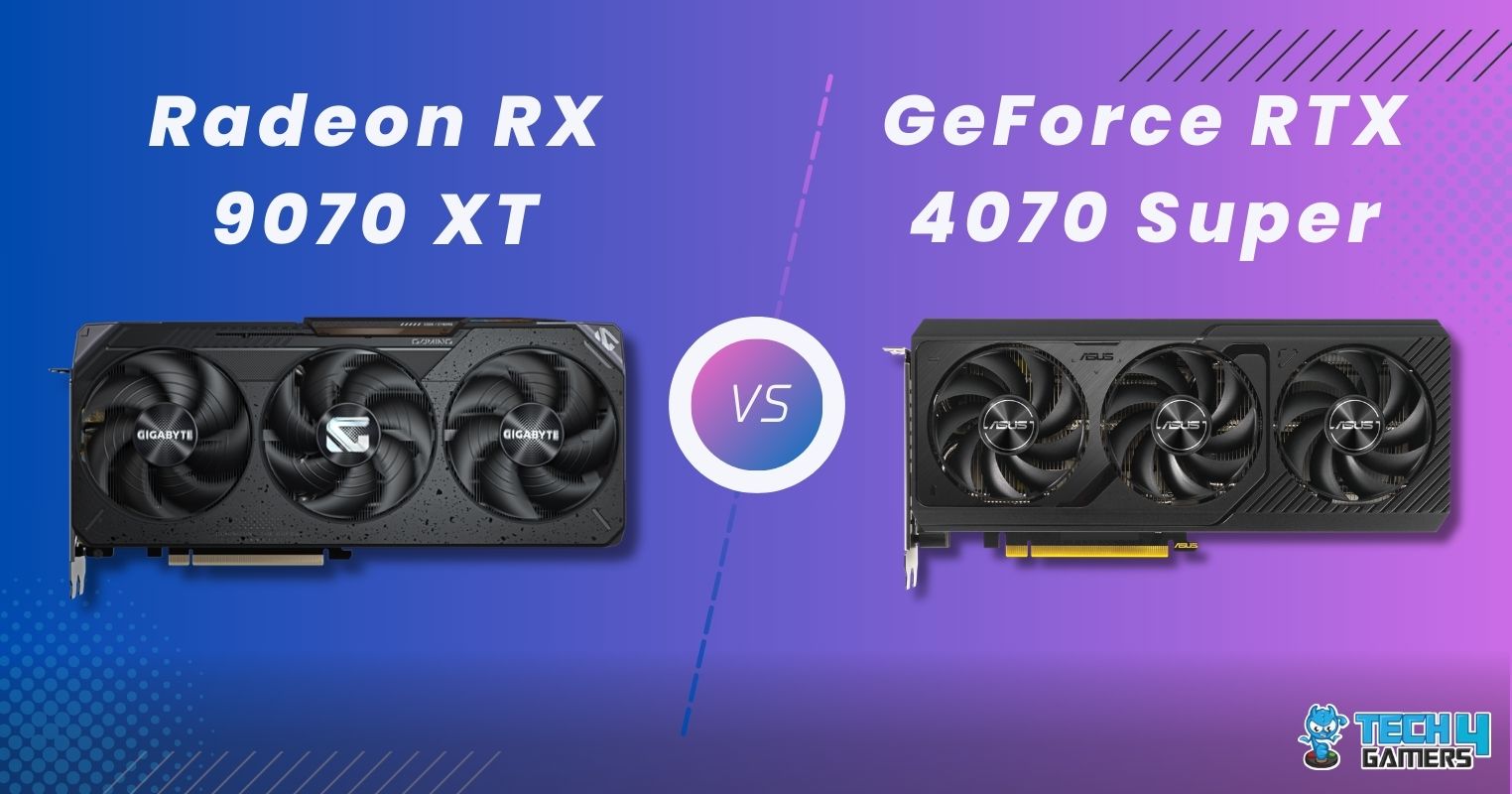Nvidia seems locked into a cycle of releasing an excellent generation of GPUs followed by a controversial one. In the RTX 4060 Ti vs RTX 3080 comparison, I will show you the differences between the controversial RTX 4060 Ti and the excellent yet unachievable at launch, the RTX 3080.
Key Takeaways
- The RTX 4060 Ti averaged about 76 FPS throughout the eight games tested today, whereas the RTX 3080 was significantly ahead with 99 FPS on average. This indicates a 30% advantage for the older card.
- The Rtx 4060 Ti averaged around 130 watts of power consumption over eight games tested, while the Rtx 3080 consumed 299 Watts on average. This means the newer card drew under half the power.
- The lower power draw of the RTX 4060 Ti also correlates with its significantly lower temperatures.
Comparison Table
| Technical Specs | NVIDIA RTX 3080 | NVIDIA RTX 4060 Ti |
| GPU | GA102 | AD106 |
| Architecture | Ampere | Ada Lovelace |
| Transistors | 28,300 million | 22,900 million |
| CUDA Cores | 8960 | 4352 |
| Tensor Cores | 280 | 136 |
| RT Cores | 70 | 34 |
| TMUs | 280 | 136 |
| ROPs | 96 | 48 |
| Memory Type | GDDR6X | GDDR6 |
| Memory Bus | 384-bit | 128 bit |
| Memory Speed | 912.4 GB/s | 288.0 GB/s |
| L2 Cache | 5 MB | 32 MB |
| MSRP | $699/$799 | $399 |
| Best Variants | Best RTX 3080 | Best RTX 4060 Ti |
Architectural Differences
- TDP: The NVIDIA RTX 3080 has a notably higher TDP of 350 Watts, indicating higher power consumption and greater thermal demands. In contrast, the NVIDIA RTX 4060 Ti boasts a much lower TDP of 160 Watts, thanks partly to its highly efficient 5nm processing nodes. The TDP of the RTX 4060 Ti is under half of the RTX 3080.
- Clock Speeds: The RTX 3080 features a base clock of 1260MHz and a boost clock of 1710MHz, offering solid clock speeds for gaming and graphics workloads. The RTX 4060 Ti showcases significantly higher clock speeds with a base clock of 2310MHz and a boost clock of 2535MHz, which can lead to improved performance. The boost clock of the RTX 4060 Ti is around 50% higher than that of the RTX 3080.
- Processing Nodes: The RTX 3080 is built on an 8nm Ampere architecture, offering impressive performance and power efficiency for its class. The RTX 4060 Ti utilizes a more advanced 5nm Ada Lovelace architecture, typically delivering better power efficiency.
- VRAM: The RTX 3080 provides options for both 10GB and 12GB of GDDR6X memory, both coming at different price points. The RTX 4060 Ti is available with 8GB or 16GB of GDDR6 memory, which, while still adequate, offers less VRAM than the RTX 3080, particularly in the lower-tier configuration.
Gaming Benchmarks
Now we shall highlight the performance of the RTX 4060 Ti vs RTX 3080 in real-world games to crown a victor to this clash. All of these tests have been done in a controlled environment on a test bench, the specifications of which are listed below:
- OS – Windows 11
- CPU – Core i5 13600K
- MOBO – ASUS ROG Strix Z790-E Gaming
- RAM – XPG Lancer (2 x 16GB) 32GB RAM DDR5 5600Mhz
- CPU Cooler – be quiet! Dark Rock Pro 4
- GPU 1 – GeForce RTX 3080 10GB
- GPU 2 – GeForce RTX 4060 Ti 8GB
- SSD – WD Black SN850 NVMe SSD
- PSU – ENERMAX REVOLUTION D.F. X 1050W
Cyberpunk 2077 (High Settings, RT Ultra)
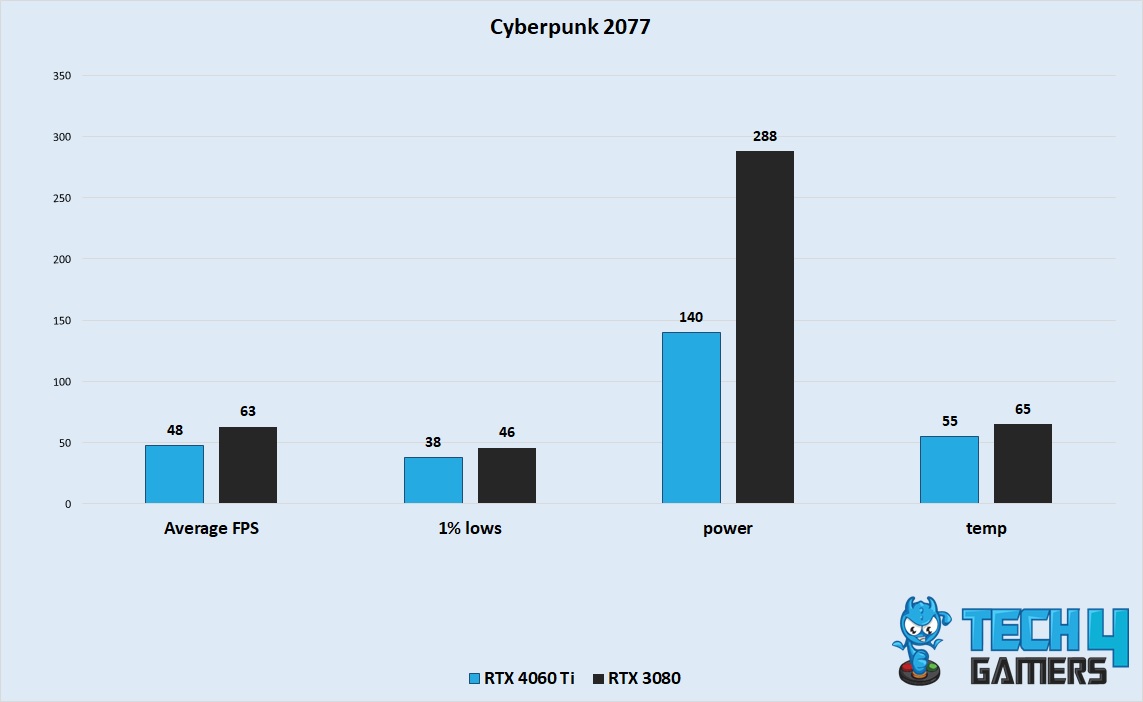
- While testing Cyberpunk 2077, the RTX 4060 Ti and the RTX 3080 delivered an acceptable performance with High settings and Ray Tracing set to Ultra. The RTX 3080 outperformed the RTX 4060 Ti, achieving an average of 63 FPS compared to the RTX 4060 Ti’s 48 FPS.
- Regarding 1% lows, the RTX 3080 maintained better frame rates during demanding moments, with 46 FPS compared to the RTX 4060 Ti’s 38 FPS.
God Of War (Ultra)
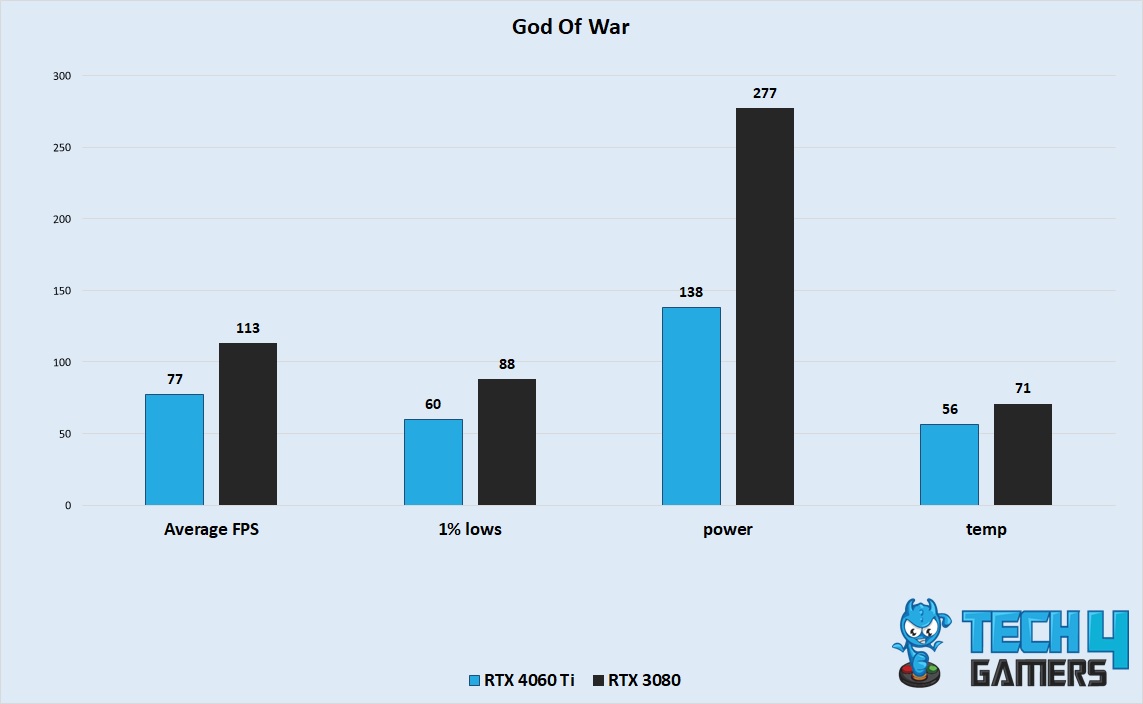
- When we ran God of War at Ultra settings, the RTX 3080 delivered a higher average of 113 FPS, surpassing the RTX 4060 Ti’s average of 77 FPS.
- In terms of 1% lows, the RTX 3080 demonstrated superior performance with 88 FPS, outperforming the RTX 4060 Ti’s 60 FPS.
Forza Horizon 5 (Extreme, RT High)
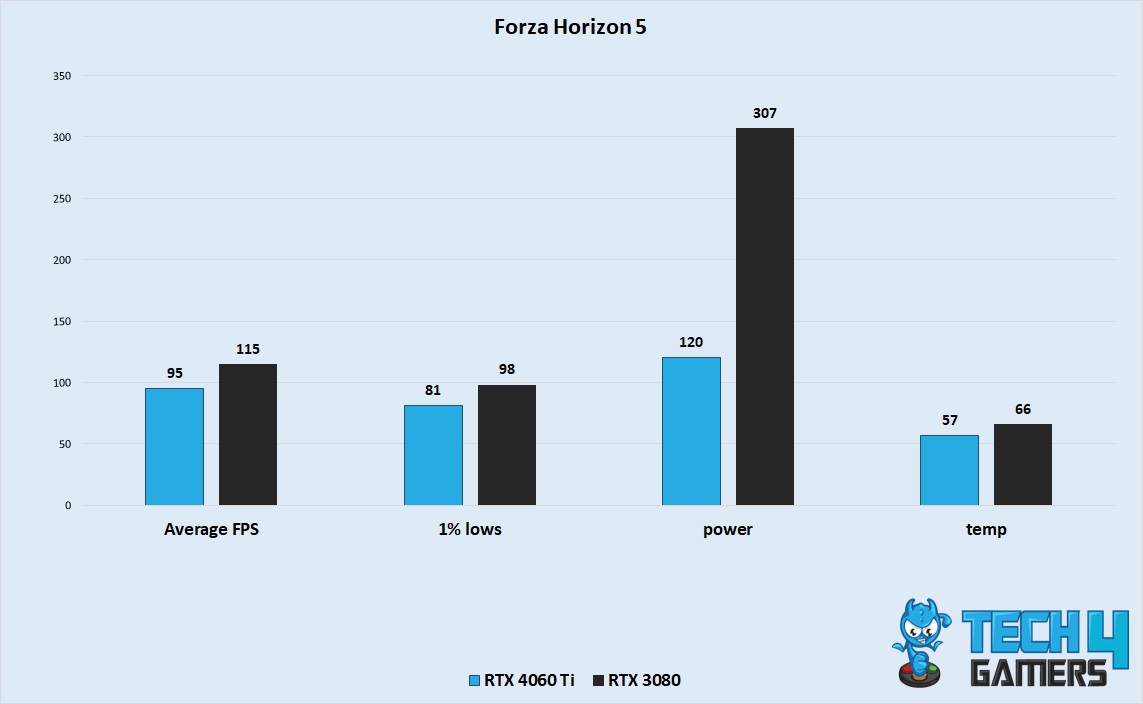
- When playing Forza Horizon 5 with Extreme RT settings on High, the RTX 3080 delivered a higher average of 115 FPS, outperforming the RTX 4060 Ti’s average of 95 FPS.
- Coming to 1% lows, the RTX 3080 showcased better performance with 98 FPS, surpassing the RTX 4060 Ti’s 81 FPS.
Red Dead Redemption 2 (High)
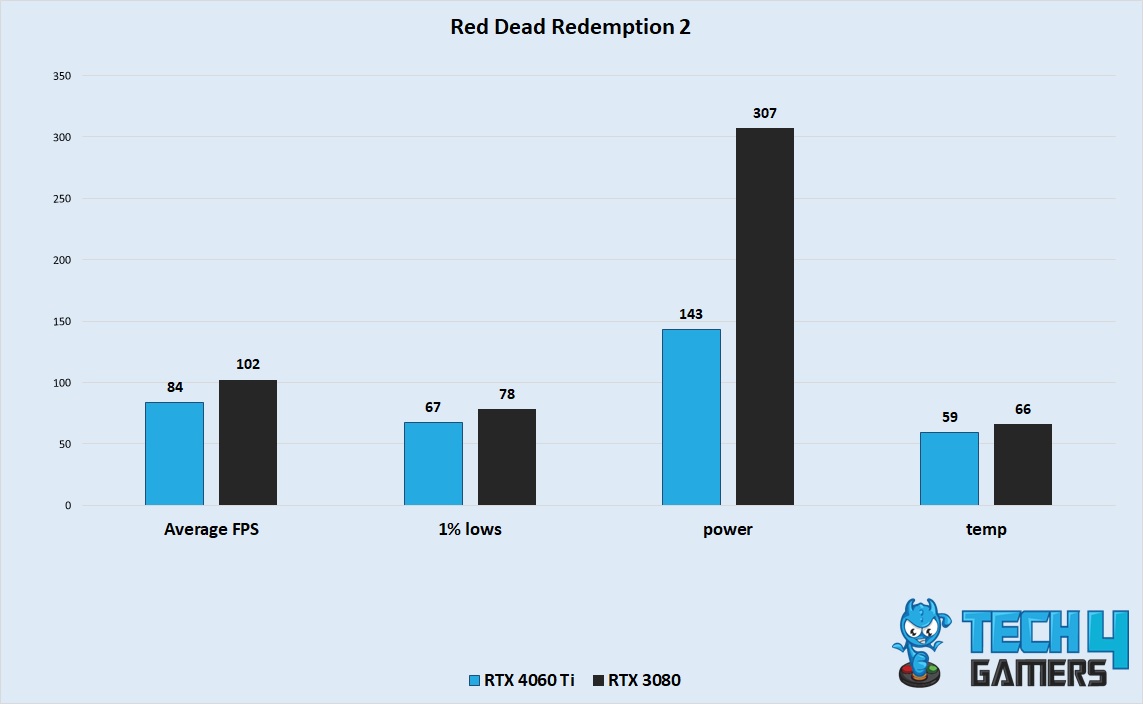
- Our testing of Red Dead Redemption 2 at High settings showed that the RTX 3080 delivered a higher average of 102 FPS, surpassing the RTX 4060 Ti’s average of 84 FPS.
- Switching gears to 1% lows, the RTX 3080 also showcased better performance with 78 FPS, outperforming the RTX 4060 Ti’s 67 FPS.
Hogwarts Legacy (Ultra, RT On)
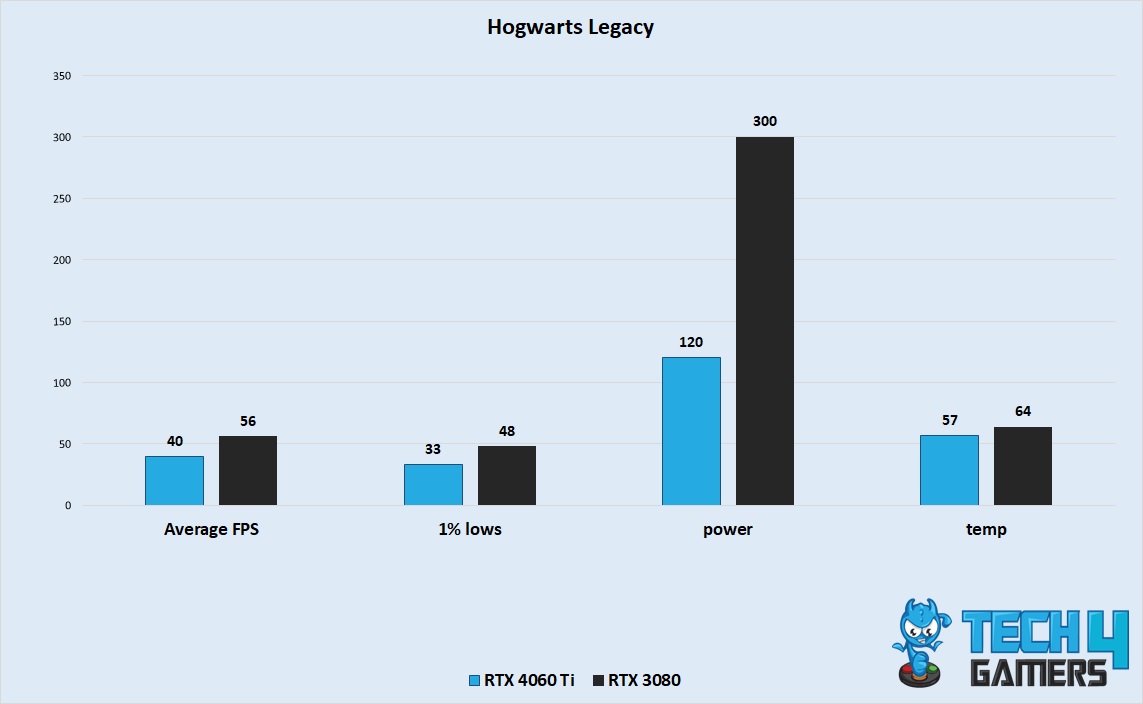
- Delving into the enchanting world of Hogwarts Legacy with Ultra settings and RT enabled, the RTX 3080 had an average framerate of about 56 FPS, while the RTX 4060 Ti trailed behind with a less magical average of 40 FPS.
- When inspecting the 1% lows, the RTX 3080 continued to hold its ground, conjuring up 48 FPS, surpassing the RTX 4060 Ti’s 33 FPS.
Hitman 3 (Ultra)
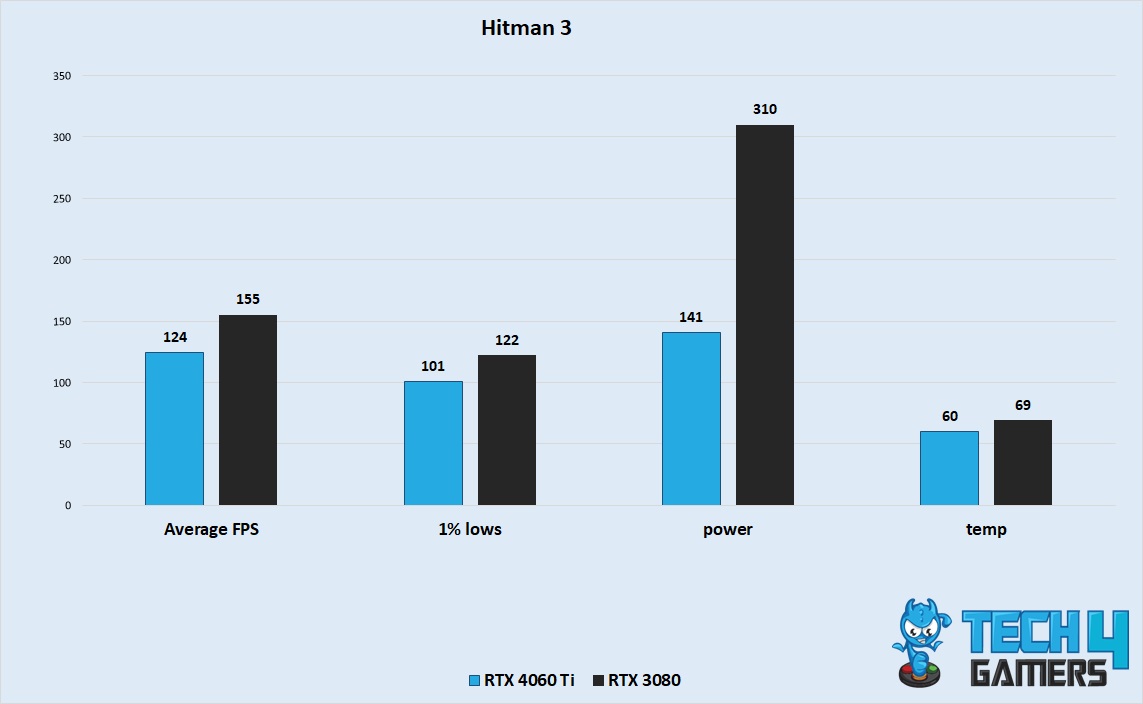
- Stepping into the world of Hitman 3 at Ultra settings, our results showed the RTX 3080 to be in the lead with an average of 155 FPS, leaving the RTX 4060 Ti slightly behind with an average of 124 FPS.
- Examining the 1% lows, the RTX 3080 maintained its superiority, providing a minimum of 122 FPS, while the RTX 4060 Ti followed closely with 101 FPS, ensuring smooth gameplay even during intense moments.
Spiderman Miles Morales (High, RT Very High)
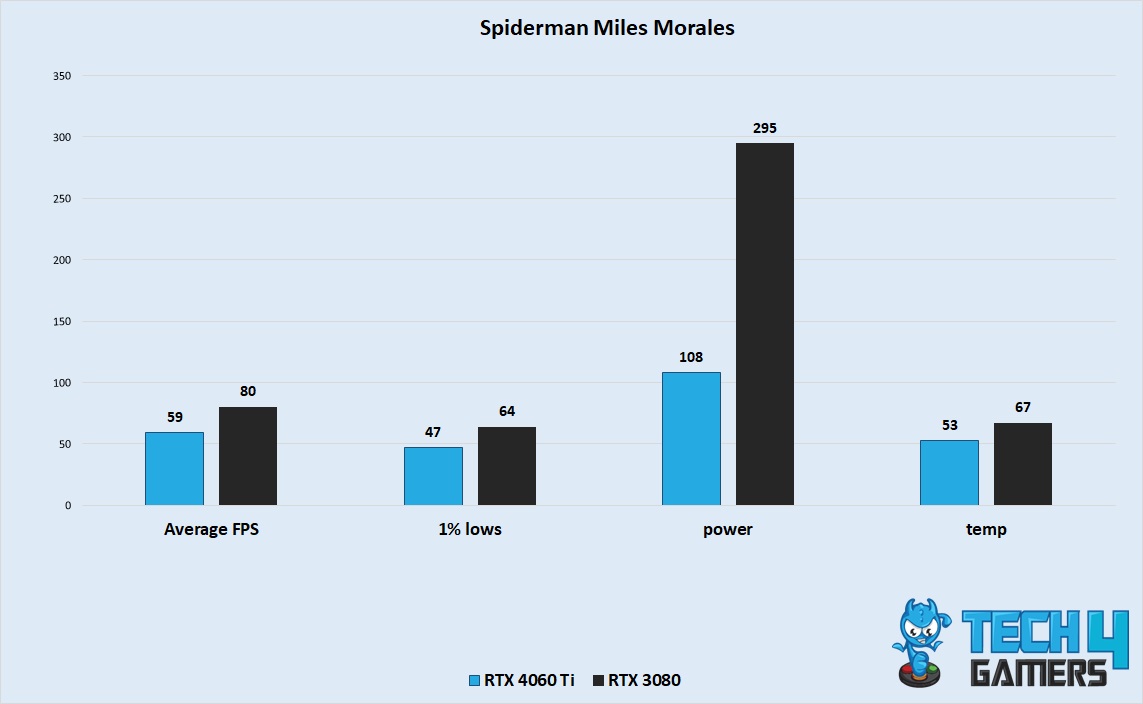
- In our benchmark of Spiderman Miles Morales at high settings and very high ray tracing, the RTX 3080 delivered a higher average of 80 FPS, surpassing the RTX 4060 Ti’s average of 59 FPS.
- Looking at the 1% lows, the RTX 3080 maintained a minimum of 64 FPS, while the RTX 4060 Ti was quite a bit behind with 47 FPS.
Horizon Zero Dawn (Ultra)
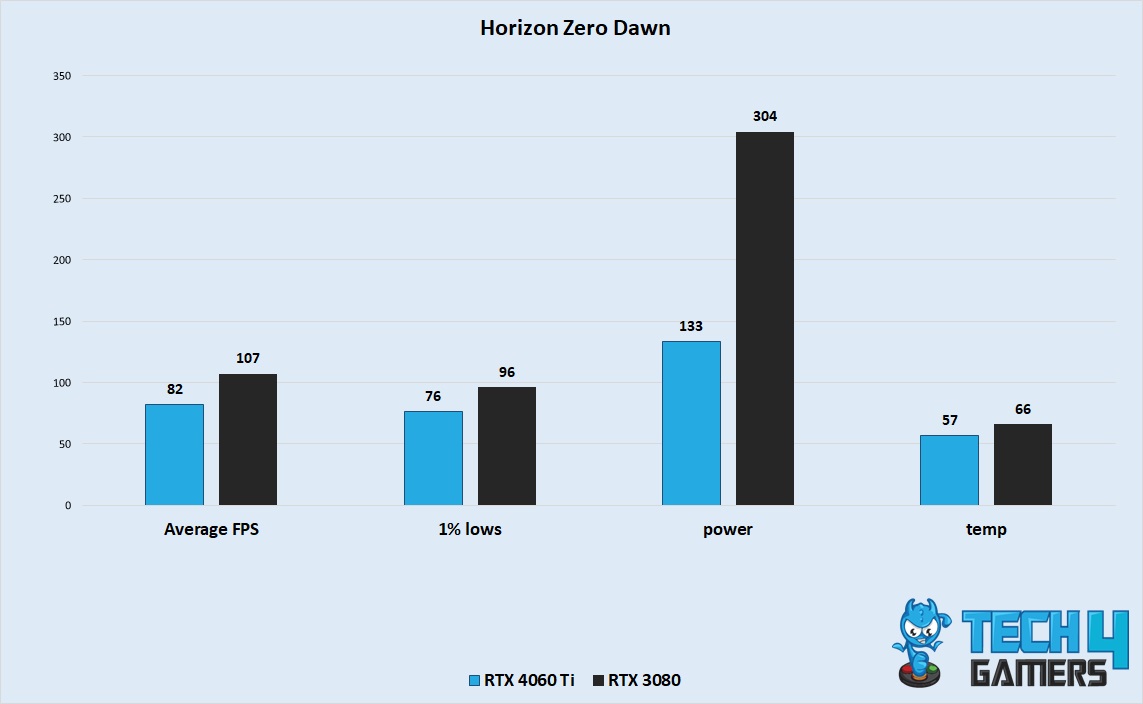
- Embarking on the breathtaking world of Horizon Zero Dawn at ultra settings, we witnessed that the RTX 3080 delivered a high average of 107 FPS, outperforming the RTX 4060 Ti’s average of 82 FPS.
- When examining the 1% lows, the RTX 3080 demonstrated stronger consistency with 1% lows of 96 FPS, while the RTX 4060 Ti maintained a respectable 76 FPS during demanding moments.
Overall Gaming Performance
Now that we have the data we need, we can take a step back to see the average performance of the RTX 4060 Ti vs RTX 3080.
Framerate
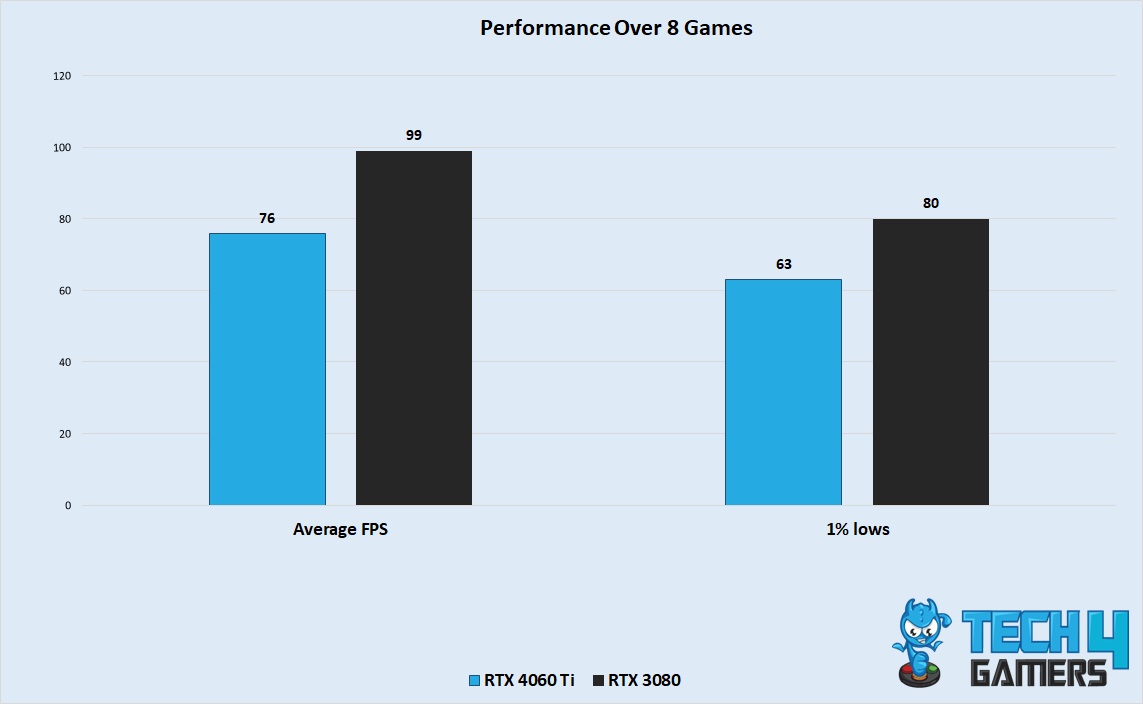
Both graphics cards performed acceptably for the stress put on them. It was remarkable to see games running at a playable framerate with ray-tracing on a 60 series of cards, albeit a Ti model.
The RTX 4060 Ti averaged about 76 FPS throughout the eight games tested today, whereas the RTX 3080 was significantly ahead with 99 FPS on average. The 3080 proved to be significantly smoother than the RTC 4060 Ti.
1% lows were also acceptable on both cards. The RTX 4060 Ti had 1% lows of 63 FPS, whereas the RTX 3080 had 1% lows of 80 FPS.
Power Consumption
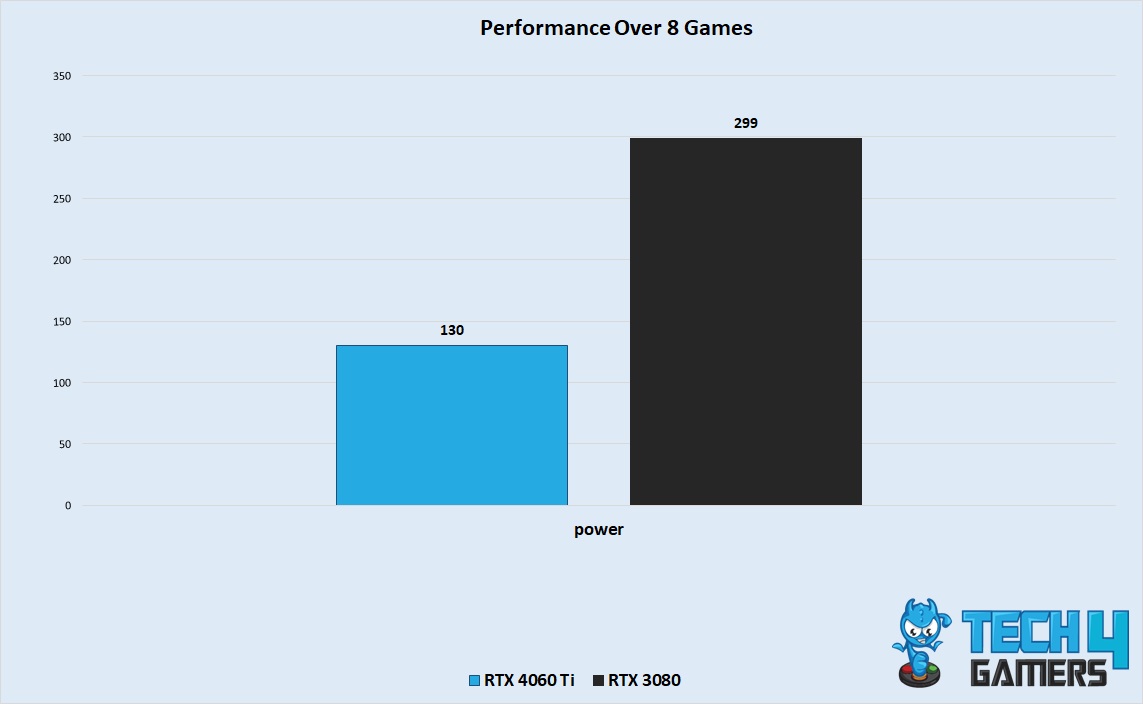
The Rtx 4060 Ti averaged around 130 watts of power consumption over eight games tested, while the Rtx 3080 consumed 299 Watts on average.
If we take the average framerate data from our tests into account, the RTX 4060 Ti had a performance per watt of about 0.6 frames/watt, while the RTX 3080 had a performance per watt of around 0.3 frames/watt. This marked the 4060 Ti as twice as power efficient as the 3080.
Though the performance of the RTX 3080 was much greater than the performance of the RTX 4060 Ti, the weaker graphics card had double the performance per watt.
Temperatures
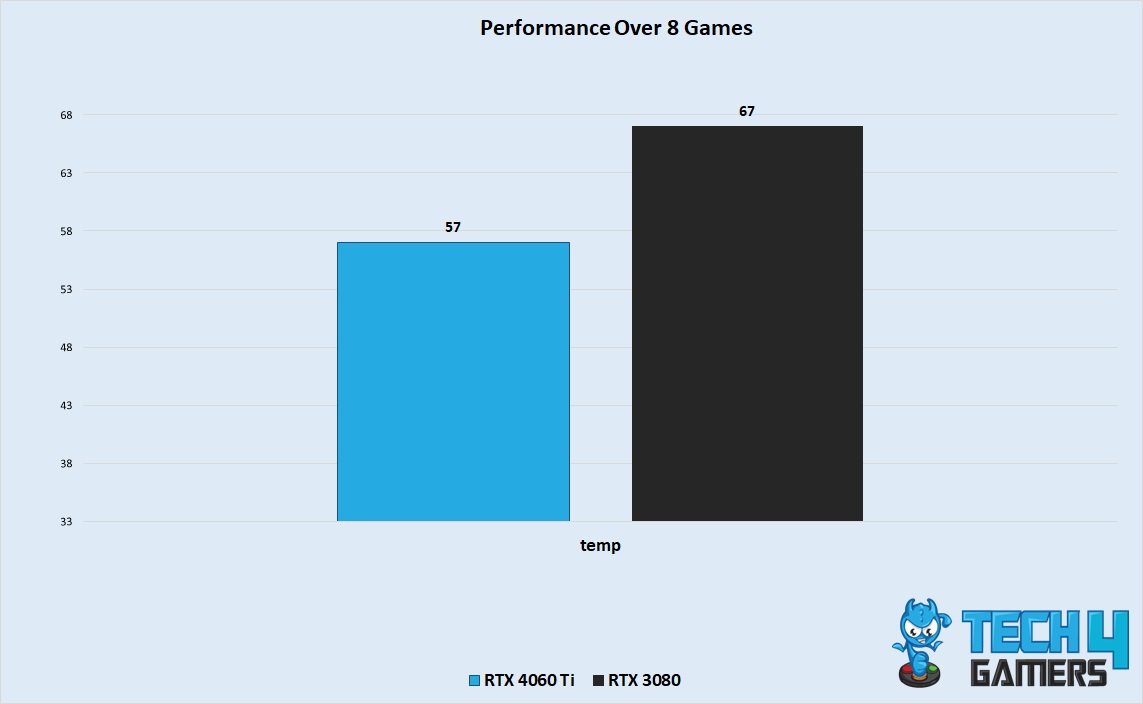
The RTX 4060 Ti had an average temperature of about 56.7°C, while the RTX 3080 was 10 degrees higher on average, with a temperature of about 66.7°C in our testing.
Both of these graphics cards operated well within the safe margins of temperature.
Temperatures are very important to keep in check if you want your GPU to reach its maximum lifespan. If you want to learn about safe GPU idle temperatures, read our guide on the topic.
Price And Availability
The MSRP of the RTX 4060 Ti is $399, whereas the RTX 3080 had a launch MSRP of $699. If you are willing to buy used, you can find the RTX 3080 for around $450 on a used retail platform like eBay. The RTX 3080 is relatively more expensive than the RTX 4060 Ti at the time of writing this article.
As for availability, both these cards should be available in your preferred retailer of choice, granted it has access to the newer stock of the RTX 4060 Ti coming in its doors.
RTX 3080 Vs RTX 4060 Ti: What We Recommend
After this detailed discussion about the differences and performance of both these cards, in this section of the RTX 4060 Ti vs RTX 3080 review, we will highlight the demographic for both these cards in light of our testing.
The RTX 3080 stands out as the stronger performer, making it a compelling option, especially when considering used purchases. Despite its age, it offers superior raw performance and boasts a larger VRAM, ensuring longevity for years.
On the other hand, the RTX 4060 Ti is no underachiever. Despite its lower-tier status, this card competes admirably against higher-tier models while consuming significantly less power. Its compatibility with DLSS 3 introduces substantial performance enhancements, making it a recommended choice for a wide range of users.
Pros And Cons
| RTX 4060 Ti | RTX 3080 | ||
| Pros | Cons | Pros | Cons |
| It is a newer card that will get driver updates for a few years longer than the RTX 3080. | It has less raw performance than the RTX 3080. | It provides outstanding value for someone looking for as much performance as possible on a slight budget. | Though it has more power on a hardware level, the software of the RTX 40 series of GPUs has the potential to outperform this card in most titles. |
| It supports DLSS 3, which can double the gaming performance of this card if you are willing to deal with some artifacts. | The asking price of this card is much higher than what would be considered suitable for an entry-level card to the RTX 40 series of GPUs. | The age of this card has allowed it to be cemented as a reliable performer without any unsavory problems. | The higher power limit of this card can warrant getting a beefier power supply, which might come as a hidden cost. |
Frequently Asked Questions
Though the 3080 is likely powerful enough to use this tech, the frame generation technology included in DLSS 3 is locked to the RTX 40 series of cards.
The RTX 4060 Ti comes in 8 GB and 16 GB models, while the RTX 3080 comes in 10 GB and 12 GB variants.
Usually, you can find this graphics card with heavy discounts because it has aged substantially.
More From RTX 3080
More From RTX 4060 Ti
Thank you! Please share your positive feedback. 🔋
How could we improve this post? Please Help us. 😔
[Comparisons Expert]
Abdemanaf is a skilled creative writer who has been honing his craft since 2011. While initially working in different fields, he found a passion for technology and has been exploring the tech world since early 2015. Over the years, he has developed an in-depth knowledge of the latest tech trends and product offerings by various companies.
Abdemanaf’s writing reflects his analytical mindset and ability to think critically. He has a knack for breaking down complex technical information into easily digestible pieces, making his articles engaging and accessible to readers from all backgrounds. In February 2022, he joined Tech4Gamers as a blog and product comparison writer, where he has been able to hone his skills further.
As a writer, Abdemanaf is dedicated to staying up-to-date with the latest technological advancements and trends, enabling him to provide readers with the most relevant and accurate information. He is always eager to learn more and is constantly seeking new challenges to improve his skills.
Get In Touch: manaf@tech4gamers.com


 Threads
Threads
